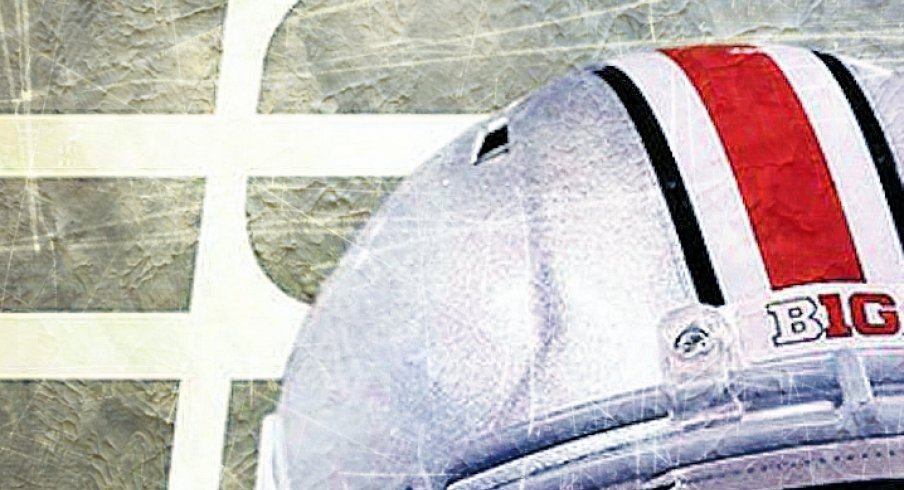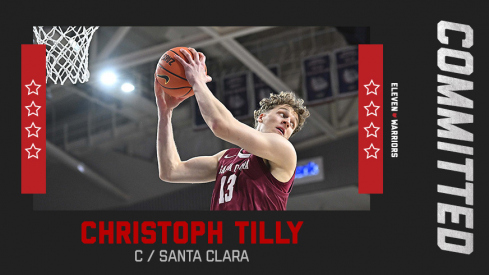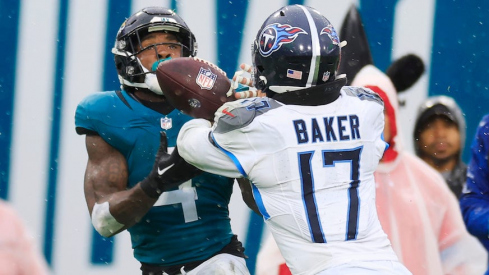The Worldwide Leader in Sports is not in dire trouble yet.
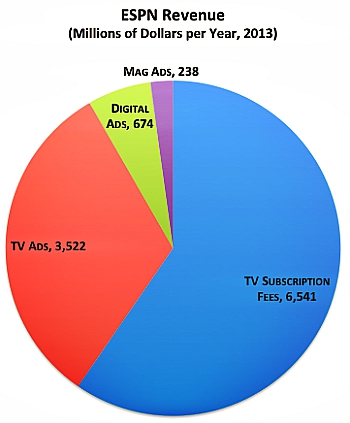
It still makes a ton of money and is No. 1 in everything it wants to win but its business model is in jeopardy: ESPN makes well north of 60 percent of its money from people who pay for cable or satellite television service, and a startling number of former customers have been cutting the cord over the past five years.
Math is simple and cruel. The pie is getting smaller.
ESPN is part of Disney, which is owned by shareholders who care less about where College Gameday is held each week than they do about noble quest to maximize shareholder wealth. Cutting the cord negatively impacts the most expensive channel on television the most. This isn't good for shareholder wealth.
This happens all the time in business, where circumstances change or fail to go as the original forecast promised they would - forcing companies to scramble and make up the gap somehow, because they are beholden to shareholders' noble quest. Fail to meet expectations and shareholders lose money. It's not a good investment or career move.
In the short term ESPN will do easy things like cutting hundreds of millions of dollars from its operating budgets over the next two years. Wall Street gets visibly aroused when companies announce layoffs or budget cuts so this news has already been helpful (look at stock price for Disney - half of which is ESPN - since the cord-cutting story started making the rounds).
THE OBJECTIVE: Make IT MORE DIFFICULT FOR CORD-CUTTERS TO ABANDON ESPN.
It's likely ESPN sees cord-cutting as more than just an unfortunate passing fad. As it examines its operating budgets it knows cutting your way to growth isn't a sustainable model. Worse, it can become a death spiral if companies become too dependent on short-term measures designed to temporarily fluff Wall Street boners.
Strategic marketing and pipeline development for a giant global company just happens to be my day job. Fortunately none of you are here to see sterile PPT slides or comb over spreadsheets, so there will be none of that. You're welcome, and thank you.
Every crisis is an opportunity to get better: Here are just a few ideas for how to make ESPN seem more important than millions of cord-cutters apparently think it is.
INNOVATION: FOOTBALL PROGRAMMING
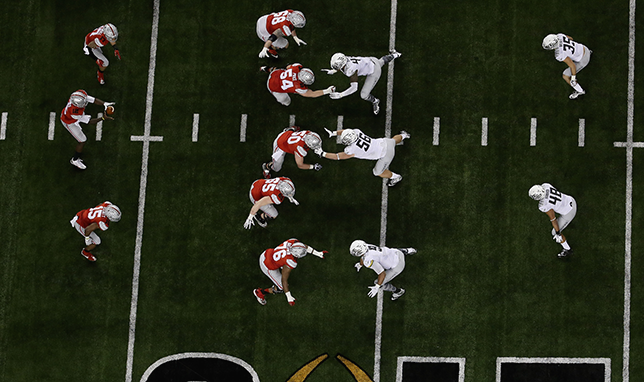
It's been about 10 years since I all but abandoned ESPN for everything except live events and true appointment television, like the 30 for 30 series. That's what keeps me a customer: I'm not quitting live sports. Let's assume that's normal behavior.
That means I'm no threat to cut the cord as long as ESPN owns the rights to the NBA, which it has for 10 more years. It owns the rights to an enormous number of other leagues and events for several more years, including the U.S. Men's National Soccer Team, Monday Night Football, most of college football and its entire postseason.
So speaking of that, take a look at this chart and see if anything jumps out at you.
| Rank | Program | Viewiers | Network |
|---|---|---|---|
| 1 | CFB National Title (OSU/Oregon) 2015 | 33.4MM | ESPN |
| 2 | CFB Sugar Bowl (OSU/Alabama) 2015 | 28.3MM | ESPN |
| 3 | CFB Rose Bowl (Oregon/FSU) 2015 | 28MM | ESPN |
| 4 | CFB BCS Title (Oregon/Auburn) 2011 | 27.3MM | ESPN |
| 5 | CFB BCS Title (Alabama/Notre Dame) 2013 | 26.4MM | ESPN |
| 6 | CFB BCS Title (FSU/Auburn) 2014 | 25.6MM | ESPN |
| 7 | CFB BCS Title (Alabama/LSU) 2012) | 24.2MM | ESPN |
| 8 | NFL MNF (Green Bay/Minnesota) 2009 | 21.8MM | ESPN |
| 9 | NFL WC (Arizona/Carolina) 2015 | 21.68MM | ESPN |
| 10 | NFL MNF (New England/New Orleans) 2009 | 21.4MM | ESPN |
| 11 | CFB Rose Bowl (TCU/Wisconsin) 2011 | 20.56MM | ESPN |
| 12 | NFL MNF (New Orleans/Atlanta) 2010 | 19.1MM | ESPN |
| 13 | NFL MNF (Washington/Dallas) 2014 | 18.8MM | ESPN |
| 14 | CFB Rose Bowl (Stanford/MSU) 2014 | 18.63MM | ESPN |
| 15 | NFL MNF (Philadelphia/Dallas) 2008 | 18.6MM | ESPN |
| 16 | NFL MNF (NYG/Dallas) 2010 | 17.95MM | ESPN |
| 17 | CFB Rose Bowl (Wisconsin/Oregon) 2012 | 17.55MM | ESPN |
| 18 | NFL MNF (New England/Baltimore) 2007 | 17.5MM | ESPN |
| 19 | NFL MNF (Green Bay/Chicago) 2010) | 17.45MM | ESPN |
| 20 | NFL MNF (Minnesota/NYJ) 2010 | 17.4MM | ESPN |
Here's what you probably noticed:
- Every one of the 20 most-watched cable programs of all time were live sporting events.
- All those live sporting events were football games.
- Every single one of them was on ESPN.
The most valuable assets it ever purchased were consumed once and then essentially forgotten. That's like taking the turkey left over from Thanksgiving dinner and throwing it out instead of reinventing it with turkey pot pie, turkey sandwiches, turkey chili, turkey anything. You already bought the turkey. That's it? One damn meal?
Remember the Megacast? ESPN presented the Ohio State-Oregon game in 12 different ways to suit all tastes, from unrepentant football nerds to people who never watch college sports (like Julie Foudy, who innocently asked during the ESPN Voices broadcast how much Urban Meyer fined Cardale Jones for skipping classes).
ESPN SQUANDERS THE RESIDUAL VALUE OF ITS COLLEGE FOOTBALL ASSETS.
Why not take the best parts of those assets and develop something new out of them? ESPN is equipped to render and repurpose all 12 feeds into a series of delicious and wholly-satisfying turkey pot pies. If that isn't your thing, imagine a rebroadcast of the 2011 BCS Title but with present-day Cam Newton and LaMichael James watching it together and giving their commentary with the gift of hindsight.
Suddenly the fourth most-watched cable telecast of all time is a refurbished-if-not-new program all over again, carried by the only media company legally allowed to show it. You think people might watch that? It could even tie into and cross-promote its NFL properties.
Instead, look at what ESPN's college football game rebroadcasting plans are for this month. Classic football games are treated like space fillers and dumped into time slots without any enhancement or imagination.
There is so much more ESPN could be doing to enhance and extend its most valuable broadcasting rights - and the majority of the product development required is already completed and expensed.
DIVESTITURE: DOG WHISTLES
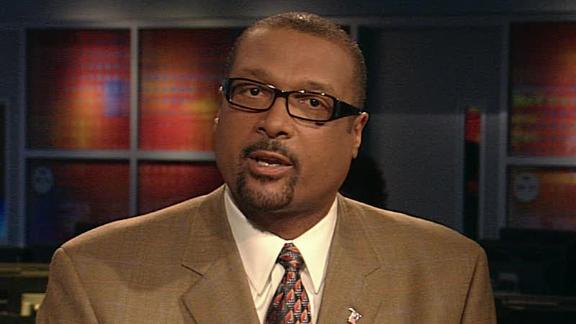
The entire genre of manufactured debate and fake controversy has become a parody of itself. It may have been profitable when it was novel but as soon as it got comprehensively stupid and pandering (related photo above) it put ESPN at a significant competitive disadvantage.
That's because anyone can be stupid, and all of us can do it for less money than it costs ESPN. Being stupid is not a differentiated product. It's a commodity. If ESPN is going to stay in that space it needs to be unique and inexpensive, two virtues which are hard to pull off simultaneously in any business, let alone when stupidity is the business.
Peeling away this loud, expensive talent will only marginally help with cost-cutting: ESPN would have to fire 200 Skip Baylesses to achieve the belt-tightening it's allegedly been asked to do for just 2016. You could find a homeless guy in any American town, give him a microphone and his takes will be as hot or hotter than anything Bayless says for the half a mil ESPN pays him annually. You could even pay that guy in soup.
ALL OF US CAN BE LOUD AND STUPID ABOUT SPORTS FOR SIGNIFICANTLY LESS MONEY THAN IT COSTS ESPN.
However, the larger and longer-term opportunity is to re-invent sports conversation in a way that is interesting, useful and less contrived than its predecessor.
This means finding more enlightening stewards for the studio shows that support ESPN's most prized assets: Live sporting events. Remember the objective - this is about making ESPN harder to abandon. Loud, bad sports takes are everywhere. You cannot beat the Internet at this. It has too many resources. ESPN will lose.
ESPN's daytime programming has devolved into unlikeable people arguing with each other, or worse, pretending to argue with each other. This is not how you make ESPN necessary to people who are increasingly looking for bills they don't need to pay.
And if ESPN is going to enhance its most valuable properties by making the shows around them harder to abandon, it can also save money at the same time by replacing the live, expensive daytime editions of Sportscenter with reruns. That show hasn't been appointment television in over a decade in part because it's always on.
When everything is breaking news, nothing is breaking news.
BRAND MANAGEMENT: STARFUCKING
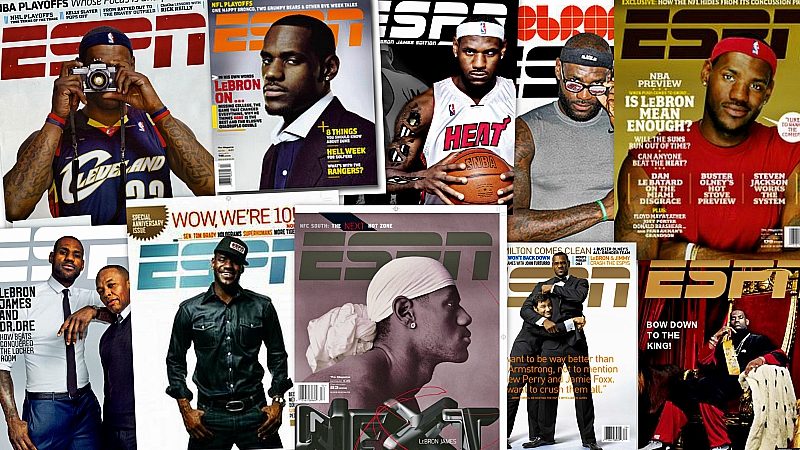
ESPN does an exceptional job of crafting the human interest story - I can't even type Tom Rinaldi's name without getting a little emotional. The great, captivating, cursed and tragic figures in sports require an elevated level of attention. Access and broadcasting rights are partners, so ESPN has a nice competitive advantage here.
The problem is that it dismisses the idea of boundaries.
Whether it's Bryce Harper, Tom Brady, Stephen Curry, Tim Tebow, anyone named Manning, or LeBron James - and previously, Derek Jeter, Brett Favre or Barry Bonds - ESPN hammers the gas and drives its hero-or-villain worship train straight into Fatigue Town. We're trying to make ESPN harder to abandon, and its approach to starfucking has been to have loud people talk endlessly about stars instead of showing more of them being stars.
It could win with differentiated content (refer to the Innovation section above) while exploiting the access it has, but as soon as it starts to compete with gossip and hot sports takes it's taking on a giant homogenous blob of less expensive competitors whose cords are not being cut.
ESPN hammers the gas and drives its hero-or-villain worship train straight INto Fatigue Town.
Athletes are the ones who should want to stay on the right side of ESPN because of its reach and influence. Instead, it's ESPN who often comes across as starstruck. There are a million fan blogs that cost nothing to run where you can read stories and gain insight into the smitten sports fan. ESPN should not be in that business.
When ESPN does it right, no one does it better. Unfortunately there is too much of a good thing and it regularly forgets its place and diminishes its value, which is no longer a forgivable sin.
The game has changed: ESPN can't just be content with having the most pie because that pie is now getting smaller. Paying for television is now seen as expendable, as too many channels have raced to bottom to create cheaper, forgettable content available everywhere. The Worldwide Leader in Sports is well-positioned to at the very least stabilize this trend.
ESPN has been self-important for far too long. It's time for it to just be important again.
